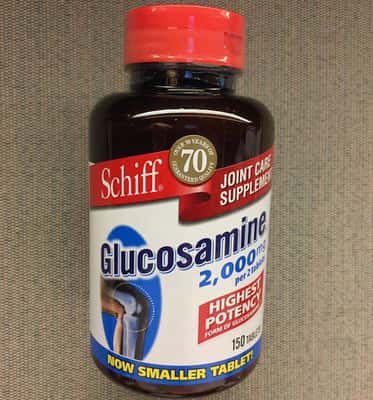
What happens if you take something for a presumed benefit only to discover that it has a downside? This happens pretty frequently with pharmaceuticals; everyone is familiar with the idea of side effects. We may be less aware of this problem as it relates to supplements, especially when the reaction is uncommon. Could taking glucosamine and chondroitin for arthritis pain increase your cholesterol levels? A number of readers suspect a connection. The most recent question comes from a reader who had seen some previous reports.
Might Supplements Increase Your Cholesterol?
Q. Two years ago my cholesterol was around 200. My doctor was OK with that.
Six months ago it was 260, which alarmed us. My diet is healthy, but I had started taking glucosamine and chondroitin for my knees and ankles.
On your website [below], some people report high cholesterol as a result of these arthritis supplements. I immediately stopped the glucosamine and chondroitin. Last month my cholesterol was measured at 207. Do these supplements interfere with the test or do they actually raise cholesterol?
Is Higher Cholesterol an Artifact?
A. You are not the first reader to report that taking glucosamine and chondroitin was associated with higher cholesterol readings. We started hearing about this association more than 20 years ago.
That said, we have not been able to find research that demonstrates these supplements actually raise lipids. Your hypothesis that they may interfere with the test is plausible, but it requires further research. Since no one is likely to conduct such a study, people will need to monitor their own reactions.
Could Glucosamine and Chondroitin Increase Your Cholesterol?
Q. I have been taking glucosamine hydrochloride and chondroitin sulfate for knee joint pain. My cholesterol has always been a little over 200.
Since last summer my cholesterol has jumped to 435. The only thing that has changed is that I take this arthritis supplement daily.
I read on your website that others have had a similar problem. I now have hope in figuring out why I have such dangerous cholesterol levels. Is there up-to-date information?
Update on Glucosamine and Cholesterol:
A. We first heard about this concern over 20 years ago.
A reader reported:
“I have been taking glucosamine for arthritis this past year and it has helped. However, the side effect has been increased cholesterol. My last count was 346, up 100 points from before.”
Since then we have heard from others that their cholesterol rises when taking glucosamine.
Researchers have attempted to study this phenomenon. They have not identified a problem (Eggertsen, Andreasson & Andrén, BMC Pharmacology & Toxicology, Oct. 10, 2012). This randomized controlled trial was quite small, however, with only 34 volunteers. We can only speculate that certain people may be especially sensitive to glucosamine. Relatively small studies might not pick up such individual reactions.
Glucosamine and Chondroitin Increased Cholesterol:
Q. My husband and I have been taking glucosamine and chondroitin for about six months to ease arthritis pain. After a cholesterol screening, we were surprised to learn that my husband’s already high cholesterol had risen 67 points, from 243 to 310. Mine remained unchanged.
My husband has been monitoring his cholesterol closely for over a decade. That’s because his brother had to have angioplasty for clogged arteries.
Have you heard from others with a similar story? Is there any research to confirm our different experiences?
A. We have heard from many other readers that glucosamine appeared to raise their cholesterol. However, as we noted above, this effect has not been confirmed in clinical trials.
Many other people tell us that, like you, they have not experienced any change in lipid levels after taking glucosamine. This leaves us wondering if there is a genetic component to the variable responses you have noticed.
Easing Arthritis Pain:
If you discover that glucosamine hydrochloride and chondroitin sulfate increase your cholesterol, you might desire a different approach to easing joint pain, such as tart cherries, Certo and grape juice or gin-soaked raisins. We discuss a number of these remedies in our eGuide to Alternatives for Arthritis. This is an electronic resource; readers who prefer to hold a book in their hands might wish to purchase the hard-copy version, Graedons’ Guide to Alternatives for Arthritis.
Citations
- Eggertsen R et al, "No changes of cholesterol levels with a commercially available glucosamine product in patients treated with lipid lowering drugs: a controlled, randomised, open cross-over trial." BMC Pharmacology & Toxicology, Oct. 10, 2012. doi: 10.1186/2050-6511-13-10

